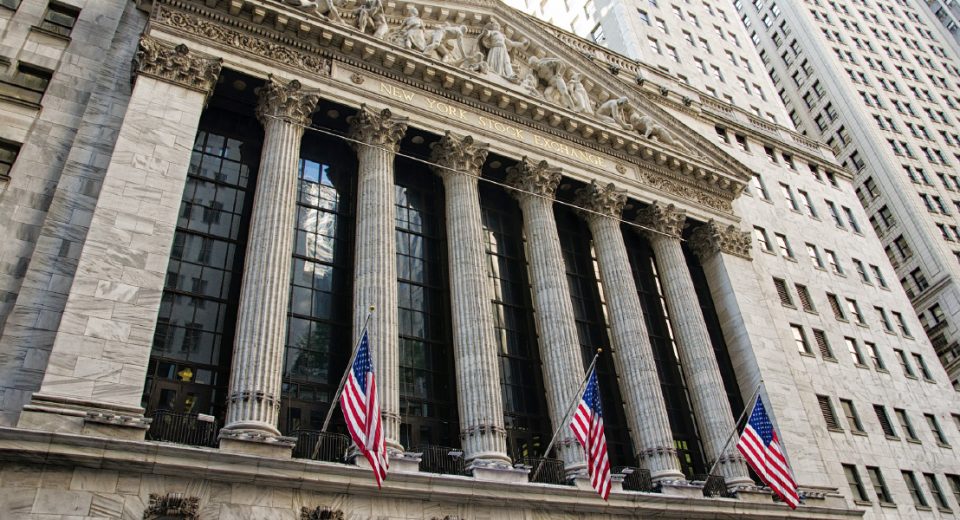The Future of Banking in the World of Cryptocurrencies

In an historic speech, given at the Annual Economic Symposium held at Wyoming, USA, in August 2019, the Governor of the Bank of England, Mark Carney, emphasised the need for a synthetic global currency, which would be backed by a basket of government-issued digital money. He argued that such a “stablecoin,” provided by a network of central bank-issued digital currencies, would help governments shape the economic future.
Prior research by the Bank of England has already suggested that if digital currencies account for a portion of all global transactions, it would not only create lower barriers to financial inclusion, but also boost GDP growth by 3%.
This is not the first time that prominent economists like Mark Carney have suggested the need for replacing the US Dollar as the world’s reserve currency. Experts have maintained that no single currency can assume this title for long and history has proven just this. Over the years, the USD has lost its reserve status to the Euro and Renminbi. But, this is not only about the US Dollar.
Governor Carney’s speech points towards imperfections in the existing banking system too. Significant economic events in the past have highlighted these imperfections. Will the creation of an “internet of money” be able to solve these problems?
Problems in the Current Banking Systems
The adoption of bank notes as legal tender is what cements the role of banking in today’s world. But there are significant drawbacks in the system. Firstly, there are different regulations for different investment options, which further vary across countries. Also, universal banking is done by large banks, whose downfall automatically impacts global economies. This has been the reason for several economic crises, the most recent being the 2008 economic meltdown. Then, there is the issue of financial intermediaries, who contribute majorly to high transaction fees and reduced transaction speeds.
Cryptocurrencies, working on blockchain, were essentially created to address these problems. Blockchain technology allows people to securely and independently conduct transactions with each other. These altcoins remain free of the impact of geo-political and economic developments. For example, Bitcoin is neither affected by country-specific interest rates nor inflation. Proponents of digital currencies have even claimed that Bitcoin has all the qualities needed to replace Central Banks!
Need for Crypto-Friendly Banks
Despite such advantages and more, leading nations have not been in favour of a crypto-friendly banking system. Countries like the US, EU and China have imposed regulatory sanctions on the use of digital currencies. The idea that cryptocurrencies could eradicate the need for banks seems to scare them. News of thefts and failed ICOs don’t help matters either.
But the number of cryptocurrency users in the world keeps on rising, and banks will not be able to ignore this fact for long. The number of blockchain wallet users in the world has increased from 6.7 million in Q1 2016 to over 34.6 million in Q1 2019, despite the crypto market volatility. This could be one of the reasons why crypto-friendly banking regulations are slowly coming to light.
Regulatory Authorities Warming Up to Cryptos?
Some countries, like Switzerland, have adopted a friendly attitude towards cryptocurrency investments. Recently, the Swiss Financial Market Supervisory Authority (FINMA) granted banking licenses to two cryptocurrency banks, SEBA and Sygnum. In the US, the New York Department of Financial Services (NYDFS) created a new research division in July 2019, which will be responsible for licensing and supervising crypto assets and their adoption by financial institutions.
Although such a changing stance is not shared by all regulatory bodies, experts remain optimistic about the emergence of a “new dawn for banking.” Products introduced by some of the largest names, such as JP Morgan and Facebook, could be just the beginning.
Large Financial Brands Investing in Crypto-Banking
In February 2019, JP Morgan announced the creation of its cryptocurrency, JPM Coin, which would act as a tool to settle transactions between financial institutions and across nations, with a digital coin pegged to the US Dollar. A day before this announcement, the Spanish bank, Banco Santander, announced a deal worth $700 million with IBM, to fuel its digital transformation.
California-based Signature Bank is already using a system called “Signet.” through which clients send millions of dollars each day. All these examples suggest that banking is becoming a key space for blockchain innovations. But, perhaps, the product that bears the closest resemblance to the solution proposed by Governor Carney is Facebook’s Libra.
In June 2019, Facebook announced the creation of its own cryptocurrency, which will empower over 2.38 billion users to make financial transactions across the globe. Libra will be backed by real assets (the Libra Reserve), along with a huge network of exchanges. These assets will comprise low volatility instruments, such as short-term government securities, denoted in stable currencies, like the Euro, US Dollar and Pound Sterling. However, issues like data privacy and global outreach to poorer sections of the society could hinder its adoption.
Cryptocurrencies Could Re-Invent the Concept of Value
Societies have strong ties to physical money, and the purchasing power it brings. People have been storing their hard-earned money in banks for generations. In return, banks have granted them interest. But these interest rates are gradually dwindling and, together with inflation, purchasing power is being eroded. Also, a majority of the global population remains untouched by this system. According to the World Bank, only 47% in low-income nations have bank accounts.
Furthermore, the current financial system rests on inflationary currencies, backed by debt. In other words, they are lending money that they don’t have. Experts predict that as wealth disparities increase over time, people who have been disadvantaged by the current financial system will find ways to exchange money without government intervention. Will this take us back to the age of a barter system then? No, but it could lead us to cryptocurrencies or programmable tokens, which don’t need to have any specific value assigned to them by centralised authorities.
Such expectations are controversial. What is known is that cryptocurrencies are global by nature and can negate the complexities of macroeconomics. However, at present, major cryptos, like Bitcoin and Ethereum, are more stores of value than a medium of exchange, which makes it difficult for banks to adopt them. Banks would also have to adapt their operational methods in order to adopt them.
The idea of a “no banks” future is still not possible, as of 2019, but it is clear that their role is slowly decreasing and will continue on this downward trend, unless the sector becomes forward thinking.
Reference Links
- https://business.financialpost.com/technology/blockchain/the-future-of-money-is-here-canada-should-take-the-lead-and-launch-our-own-cryptocurrency
- https://www.statista.com/statistics/647374/worldwide-blockchain-wallet-users/
- https://cointelegraph.com/news/swiss-crypto-banks-receive-licenses-from-financial-regulator
- https://www.adweek.com/digital/what-jpmorgans-new-cryptocurrency-means-for-banking-and-blockchain/




